- Home
- Oscar Wilde
The Importance of Being Earnest: And Other Plays
The Importance of Being Earnest: And Other Plays Read online
OSCAR WILDE
Oscar Wilde was born in Dublin in 1854. His father was a celebrated surgeon, his mother a supporter of Irish independence who presided over literary salons in Ireland and England. Although his brilliance as a classicist at Dublin’s Trinity College won him a scholarship to Magdalen College, Oxford, Wilde failed in his attempts at an academic career. Instead he set his sights on the literary and artistic worlds of London. Fusing the influences of Ruskin, the Pre-Raphaelites, Walter Pater, and Gautier’s l’art pour l’art, he made himself the most visible manifestation of the Aesthetic movement; by 1881 a burlesque of Wilde provided the protagonist for the Gilbert and Sullivan operetta Patience. It was to exploit the popularity of the operetta, in fact, that the producer D’Oyly Carte underwrote Wilde’s immensely successful lecture tour of America. Married in 1884 to Constance Lloyd, Wilde worked briefly as a magazine editor while publishing poetry, plays, fairy tales, and essays.
The Picture of Dorian Gray was commissioned by J.M. Stoddardt, the Philadelphia publisher of Lippincott’s Monthly Magazine. It appeared in the July 1890 issue and immediately gained a certain notoriety for being “mawkish and nauseous,” “unclean,” “effeminate,” and “contaminating.” When it was published as a book the following year, Wilde greatly revised and expanded the text, filling it out with a melodramatic subplot and adding a preface that defended his aesthetic philosophy. As for the book’s value as autobiography, Wilde noted in a letter that the main characters are in different ways reflections of him: “Basil Hallward is what I think I am; Lord Henry what the world thinks me; Dorian what I would like to be—in other ages, perhaps.”
In the early nineties, Wilde was at the center of an artistic milieu characterized by The Yellow Book, the Rhymers’ Club, and the art of Aubrey Beardsley. He wrote a poetic drama, Salomé, in French (1892), but it was banned in England; the play was published in book form with illustrations by Beardsley in 1894. Salomé was produced in Paris in 1896.
However, Wilde did achieve success as a popular playwright, writing in rapid succession Lady Windermere’s Fan, A Woman of No Importance, An Ideal Husband, and The Importance of Being Earnest. In 1895, two of his plays were on the London stage simultaneously, and he was acknowledged as a pivotal figure in English literary life, admired for his wit and eloquence.
Since at least the mid-1880s, Wilde had lived a sexual double life, and in 1893 he distanced himself from his family by taking rooms at the Savoy Hotel. He had by then embarked on a passionate relationship with the considerably younger Lord Alfred Douglas, the English translator of Salomé whom he had met the year after he wrote The Picture of Dorian Gray. In March 1895, Wilde undertook a libel action against the Marquess of Queensberry, Lord Alfred’s father, who had denounced Wilde as a “somdomite” [sic]. Wilde withdrew the suit following damaging cross-examination by the marquess’s defense attorney, a former classmate of Wilde’s. (Question: “Have you ever adored a young man madly?” Answer: “I have never given adoration to anybody except myself.”) Shortly thereafter, Wilde was arrested for homosexual offenses and underwent two trials before being sentenced to hard labor at Wandsworth Prison and Reading Gaol. A long recriminatory letter to Douglas written while in prison was eventually published as De Profundis.
Released in 1897, Wilde left for France, calling himself Sebastian Melmoth, a name taken from the gothic novel Melmoth the Wanderer, written by Wilde’s great-uncle. A poem based on his prison experience, The Ballad of Reading Gaol, was published in 1898.
His health destroyed, and bankrupted by legal expenses, Wilde lived in Paris for three years, making a conversion to Roman Catholicism just before his death in November 1900. He is buried in the cemetery of Père Lachaise.
CONTENTS
BIOGRAPHICAL NOTE
INTRODUCTION by Terrence McNally
A Note on the Text
Lady Windermere’S FAN
AN IDEAL HUSBAND
THE IMPORTANCE OF BEING EARNEST
NOTES
INTRODUCTION
Terrence McNally
You are holding in your hand a volume of plays by Oscar Wilde, including the funniest, most subversive play in the English language, The Importance of Being Earnest. More than a century after its first performance in London at St. James’s Theatre on February 14, 1895, it is fresh, pertinent, and very, very rude. It is a play that calls society’s bluff by naming each and every one of us a hypocrite. If it weren’t so funny, we would shun its bleak view of human society. No one likes to be made a fool of for a full evening in the theatre. And yet it is precisely because it is so spectacularly uproarious that we console ourselves that surely the playwright can’t be that serious. Society is not that morally bankrupt, is it? Is it?
The answer to that question is not to be found in Wilde’s plays but in his life itself. Wilde’s opinions on this and that subject are everywhere in his plays. They are, in fact, the entire fabric of his theatre work. Wilde the man is somewhere else. I think we glimpse him occasionally in a poem or two, but it is not until after the catastrophe of his trial on charges of “gross indecency”—a sorry and ultimately fatal episode in his short, brilliant life that was instigated by Wilde’s literally thumbing his nose at his titled male lover’s outraged father—and subsequent imprisonment that we meet a recognizable fellow human being. The ravaged man in Reading Gaol who gives us De Profundis, with its bleak indictment of the human condition, would more than likely have left Importance, a work of infectious and deliberate shallowness, after the first interval.
Being a great “character” came naturally to Oscar. He was a journalist’s delight: he was eccentric in dress and behavior, he spoke in exquisite bon mots, he was famous for simply being Oscar Wilde before he had written anything worth reading. He had a flair for being famous. It became him and he possessed it naturally. He even seemed to welcome the trial that would bring about his downfall, never doubting that he would emerge from his tribulations in the dock even more famous, notorious, and adored than before.
Being a great man came with more difficulty. It came of physical suffering, public humiliation, and almost total abandonment by those who should have cared for him most. His exile in France in the final few years of his life is one of the most painful third acts in English letters.
Not surprisingly, Wilde is still more interesting as a personality than any of the characters in his plays. Many a great actress has delighted audiences with her Lady Bracknell, but no matter who the actress playing her is—Dame Maggie Smith or Edith Evans—she cannot trump the author himself. Wilde will always be the definitive Lady Bracknell—the one we take home with us when the play is over. You can be a great Wildean actor, but Oscar himself will always be the star of the evening. Chekhov and Shakespeare’s plays are always about Uncle Vanya and Falstaff and never about the playwrights themselves. A volume entitled The Philosophy of William Shakespeare would be a very slender volume indeed. Wilde’s plays, on the other hand, are about nothing but Oscar. This diminishes them, of course, in the pantheon of great plays (is Wilde’s name ever mentioned in the same breath as the Heavyweights?), but still they burn, especially Importance, with a brilliant comic light that for sheer technique is unsurpassed. Line for line, there is no better example of comic writing than Importance.
One can soon grow weary of quoting Oscar’s funniest or most pithy one-liners. There are that many of them. Indeed, there is an entire cottage industry in slender volumes calling themselves “The Wit” or “The Best” or “The Funniest” of Oscar Wilde. He is quoted almost as endlessly as Shakespeare or the King James Version of the Holy Bible. “I have nothing to declare but my genius,” Wi
lde said when he visited the United States to lecture the rubes on Aesthetics in 1882. “A little sincerity is a dangerous thing,” he writes in an essay, “and a great deal of it is absolutely fatal.” Such wit is clever—and cruel. Cruel about the world around him and equally lacerating to himself: “Crying is the refuge of plain women, but the ruin of pretty ones.”
One can admire Wilde’s comic technique endlessly, but any attempt to emulate it is doomed to failure. Wilde is a sui generis genius. Only a very great fool would attempt to write like him. Verbal dexterity is the be-all and end-all of Wilde’s comedy. It is the play of and with words that delights us. The situations are rather routine, in fact—no French-farce banging of doors or mistaken identities in Algernon’s flat on Half-Moon Street, and the notion of physical comedy is positively alien to the Wildean spirit. Jerry Lewis or Jim Carrey would be a disaster as Importance’s two gay deceivers.
I use “gay” in the sense of charming, witty, keeping-it-light. Wilde was a gay man, but there is not much point or fun in reading his plays as encoded depictions of his sexuality. Wilde saved that part of himself for his unflinching final pieces, written when he was imprisoned and punished by the same society he had made such a brilliant career of ridiculing.
Today, Wilde’s escapades as a dandy, an aesthete, or a homosexual would still draw much media attention, but he would not end up in Reading Gaol for them. Instead, one can imagine Oscar being knighted by Her Majesty, the Queen, and certainly he would have been one of Princess Diana’s favorites. Think Boy George and Elton John. This absolute turnabout in society’s attitudes toward the sexual outlaw from outsider to insider is no small part of the legacy of Wilde’s public flamboyant life.
After the disgrace of his trial and imprisonment, the producer of Importance took Wilde’s name off billboards and out of the program. Suddenly, Wilde’s brilliant West End success was an anonymously authored one. I don’t know exactly when the restoration of Wilde’s reputation began (it surely must have started with a producer brave enough to restore Wilde’s billing in the playbill), but I do remember that his name was never once mentioned in my high school English literature course. This was in Texas in the late 1950s.
As a very young man dealing with my own sexuality, I had certainly heard rumors about this Oscar Wilde fella. There was a “reason” he wasn’t read in our classroom. His name conjured up the evil of the Marquis de Sade and his scandal was the stuff wild adolescent myths are made on. When our drama club put on Importance I could get none of my teachers to tell me anything I wanted to know about its author. He was just a man who wrote this very funny play, end of story. I went to the school library and looked him up in the encyclopedia, making sure no one saw who I was searching for in the “W’s.” To my disappointment, there were references to Wilde’s imprisonment on “moral” charges but nothing more specific than that. I wanted to know if Oscar Wilde slept with other men.
In college, by the time I was sleeping with other men, I think even a fifteen year old knew that Oscar Wilde was a homosexual. He was suddenly out of the closet, along with a lot of other cultural and moral shibboleths, and the world very quickly became a very different place.
The other plays in this volume are less interesting. They are chock-full of Wilde’s delicious, immortal epigrams (and that is imperative enough to read and enjoy them, and sufficient reason for their continuing revivals and occasional filmings), but they rarely transcend the characters’ conventionality or the now-tedious melodramatic situations in which they find themselves. (Ibsen worked these same situations with more dramatic cunning if a good deal less humor.) If Wilde’s reputation rested solely on these other works, there would be little reason for this new edition.
As for Salomé, it is best read as what my teachers used to call a “closet” drama; i.e., a play that is best experienced in the study and not performed. The title role was written for the great Sarah Bernhardt, who deemed it “unplayable.” Dramatic history would seem to have proved her right.
“My name has two ‘O’s’, two ‘F’s’, and two ‘W’s’,” Wilde wrote in 1885. He had been christened Oscar Fingal O’Flahertie Wills Wilde in Dublin in 1854. “A name which is destined to be in everyone’s mouth must not be too long,” he continued. “It comes too expensive in the advertisements … . All but two of my names have already been thrown overboard. Soon I shall discard another and be known as ‘The Wilde’ or ‘The Oscar.’”
It is ironic that Wilde, an Irishman, is generally thought of as some sort of über Englishman. Like many Irish writers, Wilde was quick to get the hell out of Ireland and never look back. But if braggadocio is an Irish trait, Wilde was Irish to his fingertips. He never doubted his genius or his success, both of which were considerable. At one point in his relatively short life (he died at forty-six), he was arguably the most famous man of letters in the world and yet he had written relatively little. His greatest play, Importance, was thirteen years in the future when he toured America as a personality and lecturer on the Aesthete. Jaded New Yorkers and unwashed gold prospectors turned out in record numbers to see him: Oscar Wilde was famous for being Oscar Wilde. If that isn’t the beginning of the cult of literary personality and the author as celebrity, I don’t know what is. (Truman Capote and Lillian Hellman were latecomers to that particular game.) If there had been a Blackglama Mink “What Becomes A Celebrity Most?” photo-ad campaign in 1895, the year of Importance’s sensational premiere—just weeks before his even more sensational downfall at the hands of Lord Alfred Douglas’s enraged father, the Marquess of Queensberry—Wilde would have been the most likely candidate for this tabloid immortalization.
Instead, he was banished to anonymity for the rest of his sad life, and then some. He was reviled, forgotten, and then reviled all over again. Today, his disgrace in the courtroom would have only increased his stature as a celebrity and his drawing power at the box office.
Oscar would have had something to say about all this, of course. Something amusing.
—
TERRENCE MCNALLY’S plays include Love! Valour! Compassion! and Master Class. In addition to four Tony Awards, McNally has received two Guggenheim Fellowships and a Rockefeller Grant, among many other honors. He lives in New York City.
A NOTE ON THE TEXT
The text is set from the first published edition of each play. After theatre productions of the plays, Wilde had time to implement changes, often substantial ones, in time for their first publications. While Lady Windermere’s Fan appeared in print approximately a year and a half after its stage debut, in 1893, in an edition by E. Mathews and J. Lane, An Ideal Husband and The Importance of Being Earnest were not published until 1899, by Leonard Smithers, as a result of Wilde’s trial, imprisonment, and exile.
LADY WINDERMERE’S FAN
A PLAY ABOUT A GOOD WOMAN
TO
THE DEAR MEMORY
OF
ROBERT EARL OF LYTTON
IN AFFECTION
AND
ADMIRATION
THE PERSONS OF THE PLAY
LORD WINDERMERE
LORD DARLINGTON
LORD AUGUSTUS LORTON
MR. DUMBY
MR. CECIL GRAHAM
MR. HOPPER
PARKER, BUTLER
LADY WINDERMERE
THE DUCHESS OF BERWICK
LADY AGATHA CARLISLE
LADY PLYMDALE
LADY STUTFIELD
LADY JEDBURGH
MRS. COWPER-COWPER
MRS. ERLYNNE
ROSALIE, Maid
LONDON: ST. JAMES’S THEATRE
Lessee and Manager: Mr. George Alexander
February 22nd, 1892
LORD WINDERMERE Mr. George Alexander
LORD DARLINGTON Mr. Nutcombe Gould
LORD AUGUSTUS LORTON Mr. H. H. Vincent
MR. CECIL GRAHAM Mr. Ben. Webster
MR. DUMBY Mr. Vane-Tempest
MR. HOPPER Mr. Alfred Holles
PARKER (Butler) Mr. V. San
sbury
LADY WINDERMERE Miss Lily Hanbury
The DUCHESS OF BERWICK Miss Fanny Coleman
LADY AGATHA CARLISLE Miss Laura Graves
LADY PLYMDALE Miss Granville
LADY J EDBURGH Miss B. Page
LADY STUTFIELD Miss Madge Girdlestone
MRS. COWPER-COWPER Miss A. De Winton
MRS. ERLYNNE Miss Marion Terry
ROSALIE (Maid) Miss Winifred Dolan
FIRST ACT
SCENE—Morning-room of Lord Windermere’s house in Carlton House Terrace. Doors C. and R. Bureau with books and papers R. Sofa with small tea-table L. Window opening on to terrace L. Table R.
(Lady Windermere is at table R., arranging roses in a blue bowl.)
(Enter Parker.)
PARKER. Is your ladyship at home this afternoon?
LADY WINDERMERE. Yes—who has called?
PARKER. Lord Darlington, my lady.
LADY WINDERMERE. (Hesitates for a moment.) Show him up—and I’m at home to any one who calls.
PARKER. Yes, my lady.
(Exit C.)
LADY WINDERMERE. It’s best for me to see him before to-night. I’m glad he’s come.
(Enter Parker C.)
PARKER Lord Darlington.
(Enter Lord Darlington C.)
(Exit Parker.)
LORD DARLINGTON. How do you do, Lady Windermere?
LADY WINDERMERE. How do you do, Lord Darlington? No, I can’t shake hands with you. My hands are all wet with these roses.
Aren’t they lovely? They came up from Selby this morning.
LORD DARLINGTON. They are quite perfect. (Sees a fan lying on the table.) And what a wonderful fan! May I look at it?
LADY WINDERMERE. Do. Pretty, isn’t it! It’s got my name on it, and everything. I have only just seen it myself. It’s my husband’s birthday present to me. You know to-day is my birthday?

 The Picture of Dorian Gray
The Picture of Dorian Gray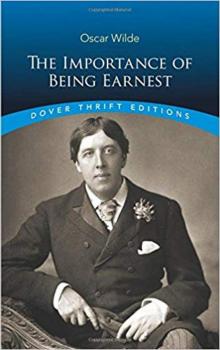 The Importance of Being Earnest
The Importance of Being Earnest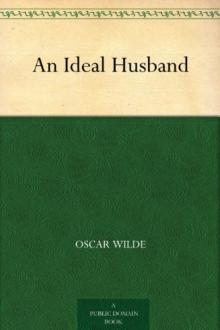 An Ideal Husband
An Ideal Husband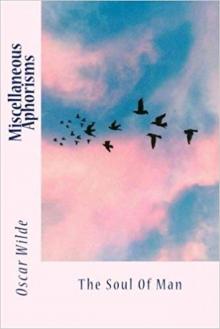 Miscellaneous Aphorisms; The Soul of Man
Miscellaneous Aphorisms; The Soul of Man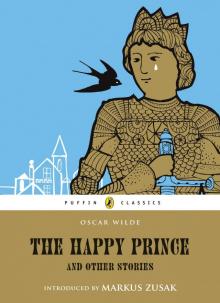 The Happy Prince and Other Tales
The Happy Prince and Other Tales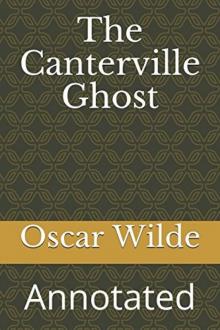 The Canterville Ghost: Annotated
The Canterville Ghost: Annotated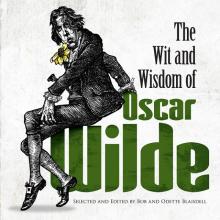 The Wit and Wisdom of Oscar Wilde
The Wit and Wisdom of Oscar Wilde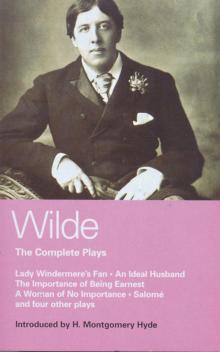 The Complete Plays
The Complete Plays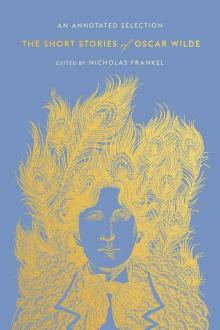 The Short Stories of Oscar Wilde
The Short Stories of Oscar Wilde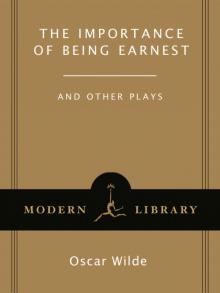 The Importance of Being Earnest: And Other Plays
The Importance of Being Earnest: And Other Plays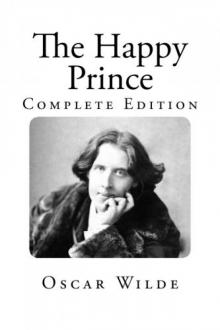 The Happy Prince (Oscar Wilde Classics)
The Happy Prince (Oscar Wilde Classics)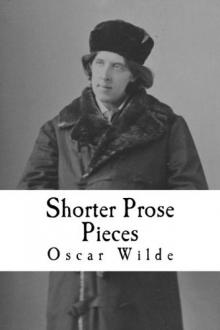 Shorter Prose Pieces
Shorter Prose Pieces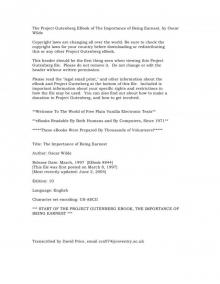 Importance of Being Earnest
Importance of Being Earnest Selected Tales: Shorter Prose Pieces
Selected Tales: Shorter Prose Pieces The Penny Dreadfuls MEGAPACK™
The Penny Dreadfuls MEGAPACK™ The Complete Short Fiction
The Complete Short Fiction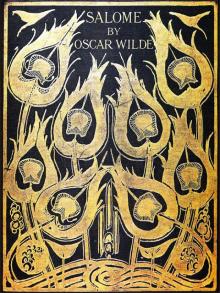 The Illustrated Salomé in English & French (with Active Table of Contents)
The Illustrated Salomé in English & French (with Active Table of Contents)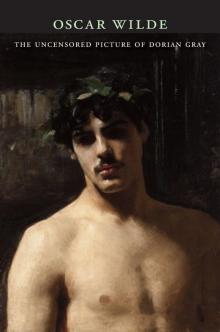 The Uncensored Picture of Dorian Gray
The Uncensored Picture of Dorian Gray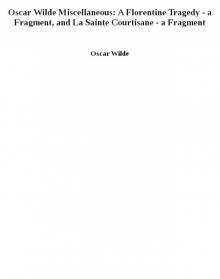 Oscar Wilde Miscellaneous: A Florentine Tragedy - a Fragment, and La Sainte Courtisane - a Fragment
Oscar Wilde Miscellaneous: A Florentine Tragedy - a Fragment, and La Sainte Courtisane - a Fragment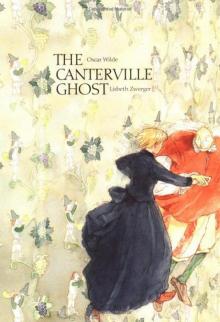 The Canterville Ghost (Illustrated by WALLACE GOLDSMITH)
The Canterville Ghost (Illustrated by WALLACE GOLDSMITH)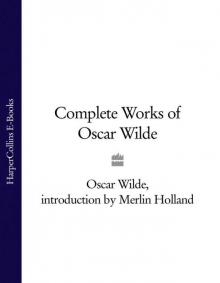 Complete Works of Oscar Wilde
Complete Works of Oscar Wilde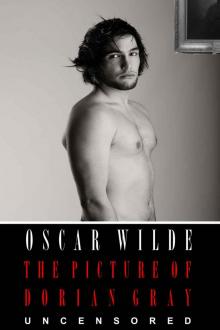 The Picture of Dorian Gray: The Uncensored Original Text (Annotated) (First Ebook Edition)
The Picture of Dorian Gray: The Uncensored Original Text (Annotated) (First Ebook Edition)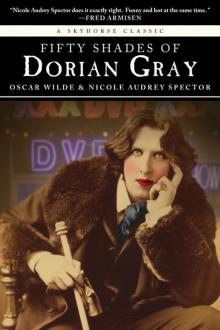 Fifty Shades of Dorian Gray
Fifty Shades of Dorian Gray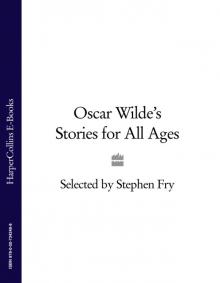 Oscar Wilde's Stories for All Ages
Oscar Wilde's Stories for All Ages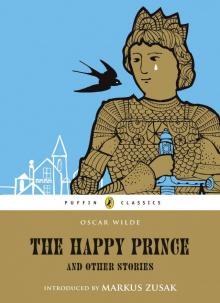 The Happy Prince & Other Stories (Puffin Classics Relaunch)
The Happy Prince & Other Stories (Puffin Classics Relaunch)